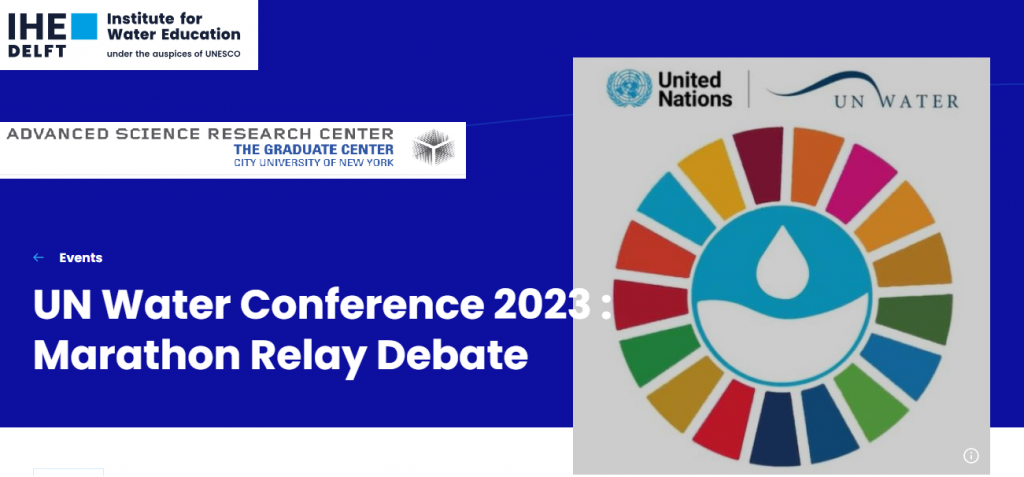NY Water Week Marathon Relay Discussion for Water leads to Formation of Global Accelerator Incubation Network
The 17 Sustainable Development Goals (SDGs) were adopted by the United Nations in 2015 as a universal call to action to end poverty, protect the planet, and ensure that by 2030 all people enjoy peace and prosperity. Successfully fulfilling SDG-6, on Clean Water and Sanitation, and other water-related goals, is key to overall success of the SDGs. However, we are not on track, and science-informed policy formulation and practical solutions to our water problems are urgently needed.

Led by IHE-Delft and the City University of New York, with the backing of UNESCO-IHP, a diverse group of water experts from universities, government, civil society, and business recently created a mechanism to harvest ideas that can be used to effectively implement five SDG-6 “accelerators”. The effort began as a dialogue, or “marathon relay debate”, in New York City, NY on March 20-21, in association with the UN Water Conference and New York Water Week. It was staged as a 24-hour hybrid event, sequentially executed across nine different time zones, with kick-off and capstone events at the CUNY Advanced Science Research Center and Hunter College Roosevelt House, respectively. Over 600 participants from around the world contributed their ideas to identify actions and innovations that could accelerate progress. ICIWaRM’s director, Will Logan, helped organize and served on a panel on “Global Research and Innovation Priorities to Achieve SDG 6” on 21 Mar.
This dialogue generated key messages to be carried into the March 2023 UN Water Conference in New York. One such recommendation is the creation of GAINS6—The Global Accelerator Incubation Network for SDG 6, to serve as a collaborative meeting ground, incubator, knowledge clearinghouse, and idea exchange for SDG-6 implementation. Additional research recommendations for SDG 6 acceleration included:
Governance: Explore and understand the limitations and unintended consequences of current risk averse water policies.
Finance: Explore and understand the limitations and unintended consequences of current water policies; determine the comparative efficacy of centralized vs decentralized funding for water development.
Data and Information: Develop methods to instill trust and transparency into water-related data to improve its adoption across different users (from researchers to practitioners to educators to the public).
Innovation: Methods to catalyze innovation in the context of a prevalent conservative/risk-averse mindset.
Capacity Development: Stimulate inter-disciplinary approaches and with broad constituencies; undertake an inventory of competency that could lead to improved targeting of capacity development efforts.
